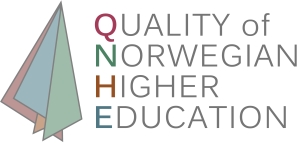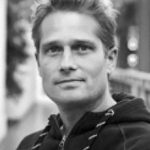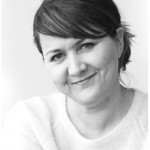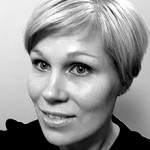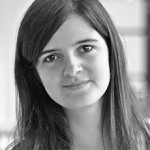Goals
The overall goal of this part is to produce in-depth knowledge about process quality in educational practices. This will be achieved by analyzing types of practices in Norwegian higher education across a variety of study programs, and to identify key factors that enhance the quality of these practices and their productive interrelations. Educational practices include curriculum work, teaching and learning activities, and assessment practices. The research activities will target significant quality aspects of these practices and how they are intertwined, guided by a set of related research questions:
- Curriculum design and course development: What rationales inform the selection and organization of knowledge in different types of programs and courses? What strategies for renewal and improvement appear productive for keeping up with domain-specific knowledge developments? What challenges do teachers and students experience in this regard?
- Teaching and learning activities: What forms of teaching and learning activities are used in the programs and courses? How do these co-vary with experienced learning outcomes?
- Feedback and assessment practices: What characterizes productive feedback practices in different teaching-learning environments, and what experiences and challenges do teachers and students face in providing and taking advantage of various forms of feedback?
Across the activities we will consider the forms and occurrence of technology-enhanced and research-based activities and how these support productive learning. We will also consider how the various practices are influenced by program types and disciplinary differences.
Empirical approach
We will employ a case-based design, comprising in-depth observations of teaching and learning activities at the course level in 6 study programs, supplemented with interviews and document analyses. The selection of courses will be informed by patterns and differences revealed in parts A and B of the project. To ensure rich data for identifying productive relations and factors that enhance educational quality, we will examine courses that seem to work well. We will include courses that are rich in ICT-use and involve students in research-oriented activities. We will also approach teachers and students in more problematic cases to reveal what challenges and hindrances they face.
To prepare for the empirical work, we will first review the rather fragmented research on teaching and learning in higher education to further identify and operationalize a set of indicators on quality in educational practices. We are developing an observation protocol accentuating these factors in the analysis of teaching/learning activities and feedback practices at the course level. Within each course, we will select a period of 2-3 weeks or about 12 hours for in-depth observations and use video-based observations to record activities with high interactional complexity and student involvement, such as group work and inquiry-based processes. Whenever possible, we will include data from online spaces utilized by students and teachers. Interviews will be conducted with academic staff and students. Staff interviews will focus on ways of structuring, planning and realizing a course curriculum, as well as considerations about student learning and feedback processes. This will include conceptions and experiences related to technology use. We will conduct group interviews with students, focusing on their experiences as learners, their experienced learning outcomes, and academic engagement within and beyond the course context. As secondary data we will collect course descriptions, instructional plans, learning materials and assignments.
Parallel project in Helsinki
As a part of part C, a parallel project will be carried out by project partners at Univesity of Helsinki. Dr. Heidi Hyytinen will work on the parallel project in Helsinki and also work as a part of the project team in Part C.
Part C team
Sub-project C is led by Professor Monika Nerland and Dr. Tine Prøitz.
Publications
- Damsa, C. & de Lange, T. (2019) “Studentsentrerte perspektiver og tiltak i høyere utdanning. Et forskningsbasert innspill til kvalitetsarbeid i praksis“, UNIPED, 42(1).
- Damsa, C. & de Lange, T. (2019) “Student-centred learning environments in higher education. From conceptualization to design“, UNIPED, 42(1).
- Stalheim, O.R. & Nordkvelle, Y. (2019) “Skal vi la pasienten døy? Sjukepleiarstudentar sine erfaringar med å handtere utfordringar i simulering“, UNIPED, 42(1).
- Fossland, T. & Tømte, C. (2019) “Deltaker eller tilskuer? En casestudie om vilkår for deltakelse og samarbeidslæring i et nettbasert masterprogram i økonomi og ledelse (MBA)“, UNIPED, 42(1).
- Esterhazy, R, & Fiksen. Ø (2019) “Evolution of a portfolio-based design in ecology: a three-year design cycle“, UNIPED, 42(1).
- Hyytinen, H., Haarala-Muhonen, A. & Räisänen, M. (2019) “How do self-regulation and self-efficacy beliefs associate with law students’ experiences of teaching and learning?“, UNIPED, 42(1).
- Lindblom-Ylänne, S. (2019) “The role of research-based evidence in cultivating quality of teaching and learning in higher education“, UNIPED, 42(1).
- Nerland, M. (2019) “Kvalitetsarbeid i studieprogrammene: fagene som kontekst for studentaktivisering og kunnskapsintegrasjon“, UNIPED, 42(1).
- Nordkvelle, Yngve Troye; Stalheim, Odd Rune; Fossland, Trine; de Lange, Thomas; Wittek, Anne Line & Nerland, Monika (2019). Simulating: Bridging the Gap Between Practice and Theory in Higher Professional Education, In Karen Trimmer; Tara Newman & Fernando Padró (ed.), Ensuring Quality in Professional Education Volume I. Palgrave Macmillan. ISBN 978-3-030-01095-9. 3. s 53 – 72
- Esterhazy, R. (2018) What matters for productive feedback? Disciplinary practices and their relational dynamics, Assessment & Evaluation in Higher Education, 43(8), 1302-1314
- Stalheim, O.R. & Nordkvelle, Y. (2018) “I Saved the Patient: Simulation and Self-Efficacy in Health Education”, in Hodges, E. (Ed) Self-Efficacy in Instructional Technology Contexts, Springer.
- Nerland, M. & Prøitz, T. S. (Eds) (2018) “Pathways to quality in higher education. Case studies of educational practices in eight courses” Report 2018:3, Oslo: NIFU/UiO
- Nerland, M. & Damsa, C. (forthcoming) ‘VET as Lifelong Learning: Engagement with Distributed Knowledge in Software Engineering’. L. Unwin & D. Guile, eds, Wiley International Handbook on Vocational Education and Training. Forthcoming, Wiley 2018.
- Esterhazy, R. & Damsa, C. (2017). Unpacking the feedback process: an analysis of undergraduate students’ interactional meaningmaking of feedback comments. Studies in Higher Education.http://dx.doi.org/10.1080/03075079.2017.1359249
